Kunming, June 21 — The South and Southeast Asia International Talent Exchange Midsummer Reception took place in Kunming, serving as a fresh and dynamic platform for cross-border dialogue. The event was co-hosted by Shanhe University and Landing Law Offices, under the guidance of the Yunnan International Talent Service Center(云南省国际人才服务中心指导) and with support from the National Youth Work Committee of Landing Law Offices(兰迪律师事务所全国青年工作委员会). By blending a relaxed, open atmosphere with meaningful discussions, the reception highlighted education cooperation, cross-border development, and regional collaboration.
When Education Meets “Beer Socializing”
Departing from the conventional lecture-style approach, the event adopted an innovative format of mixed seating, networking over beer, and free-flowing conversations. This setup addressed two common challenges—language barriers and formalized interactions—by creating an inclusive and authentic environment for dialogue among participants.
A Strategic Voice from the Organizer: Liu Yixing, Chair of the Global Management Committee, Landing Law Offices
In his keynote remarks, Mr. Liu Yixing reviewed Landing Law Offices’ expansion in South and Southeast Asia, noting the firm’s growing presence in countries including Pakistan, Laos, and Vietnam. He underscored the strategic role of legal services in promoting regional cooperation and enabling cross-border development.
Mr. Liu emphasized that today’s youth are living in an era defined by globalization, internationalization, and technological innovation. He observed that success lies less in “talent and background” than in the ability to recognize and seize opportunities. For young people from South and Southeast Asia who choose to study and live in China, this represents a timely opportunity to thrive as vital contributors to the future.
Highlighting the essence of the “China Opportunity,” Mr. Liu pointed out that peace and development remain the foundation of regional progress, ensuring a stable environment for youth to grow and innovate. He stressed that even in the era of AI and big data, face-to-face communication remains irreplaceable, while meaningful, human connections that resemble quantum entanglement can elevate thought and drive cultural integration.
Concluding his speech, Mr. Liu encouraged young people to “embrace the prosperous era and move forward together,” working hand in hand to build a brighter future and a community of shared destiny across the region.
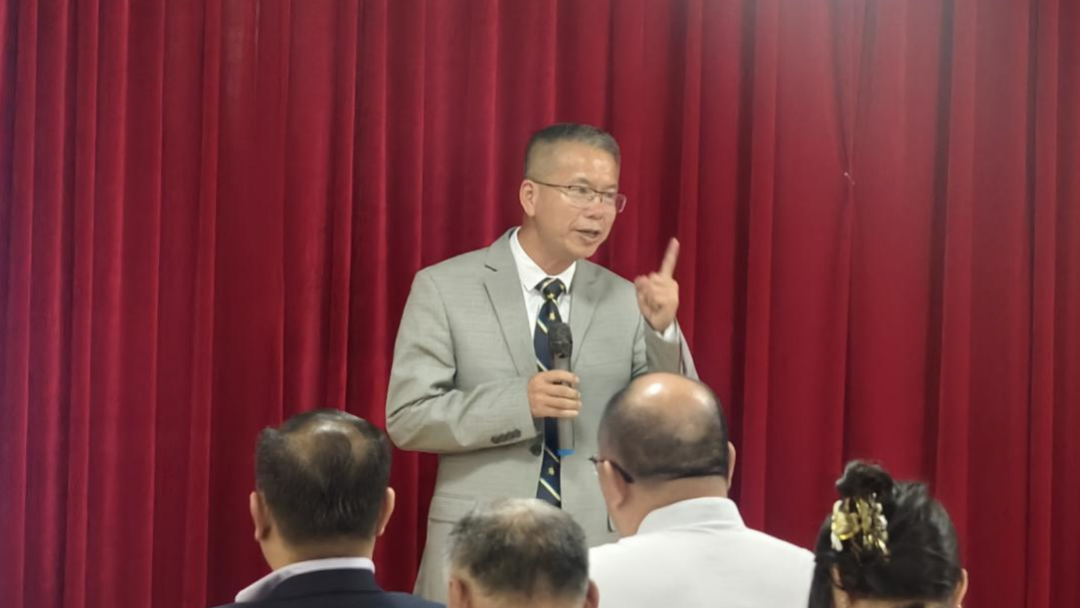
Remarks by Mr. Bothong, Deputy Consul General of Laos in Kunming
Speaking in his capacity as the diplomatic representative overseeing educational affairs, Mr. Bothong noted that in recent years the Chinese government has provided approximately 1,000 scholarship opportunities annually to Laotian students, greatly contributing to Laos’ educational development and talent cultivation. He highlighted that in Yunnan Province alone, more than 1,000 Laotian students are currently enrolled across various universities, covering a wide range of academic disciplines.
He emphasized that China and Laos already enjoy a strong foundation of educational cooperation, which will continue to expand in the future. Expressing high recognition of the event, he affirmed that such face-to-face and diversified exchanges help to deepen mutual understanding and foster lasting friendships among the younger generation.
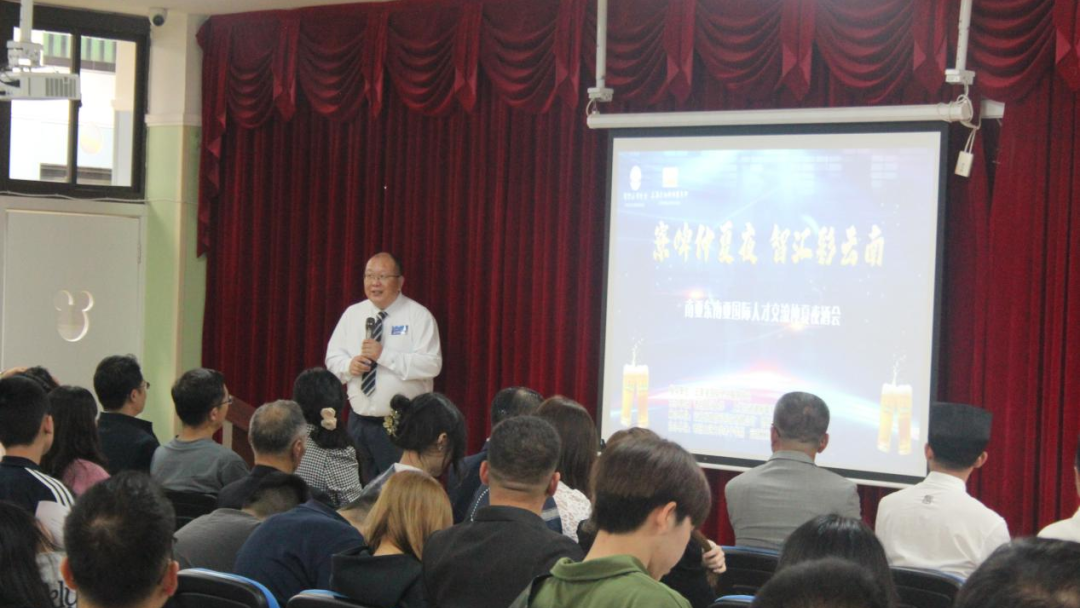
Address by President Hu Haibo of Shanhe University in Laos
President Hu Haibo began by reviewing the founding background of three Laotian universities, noting that all three were established in 2023 in Vientiane, the capital of Laos. As newly emerging higher education institutions, they have already launched undergraduate and diploma programs this year, with plans to introduce master’s and doctoral programs by 2028.
Under the supervision of the Lao Ministry of Education, the universities aim to build an internationalized education platform. Looking ahead, they plan to cooperate with China’s top 985 and 211 universities to jointly establish a “Land College” and “Joint College,” promoting a dual-degree system between China and Laos, while adopting China’s advanced teaching models and management systems.
President Hu stressed that the founding of a university is not only an educational endeavor, but also a bridge of friendship between China and Laos. He expressed the hope that people from all walks of life in China would continue to support and promote these initiatives.
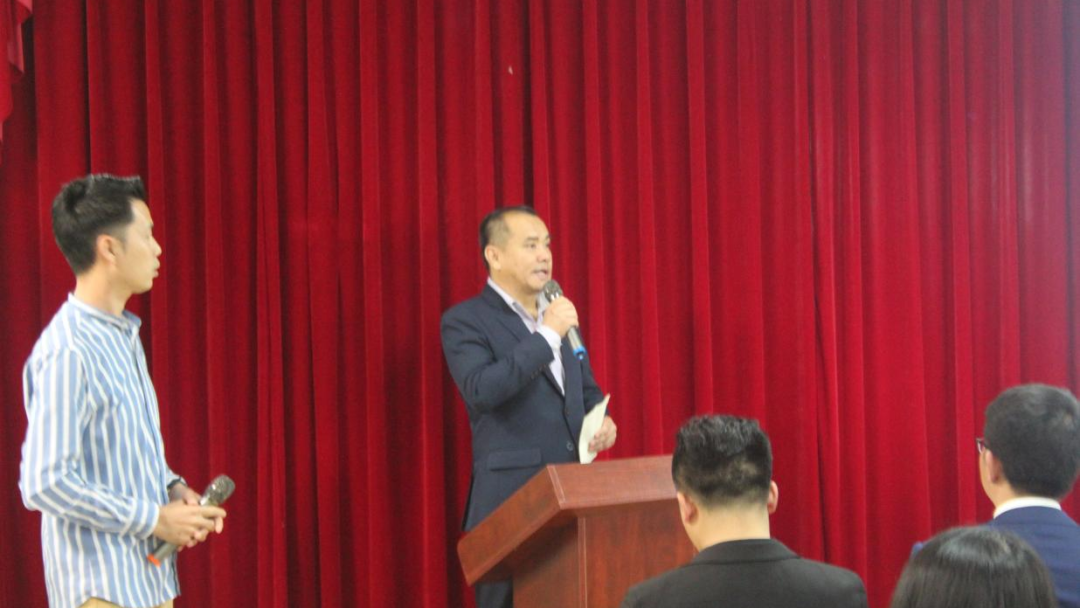
Thematic Sharing: A Collaborative Vision from Diverse Perspectives
The session was hosted by Mr. Lin Yi, Senior Partner at Landing (Kunming) Law Offices. With his witty and engaging moderation style, he guided the entire event, creating a relaxed and lively atmosphere where guests could speak freely. His approach transformed the gathering into a cross-disciplinary exchange that combined both depth and enjoyment.
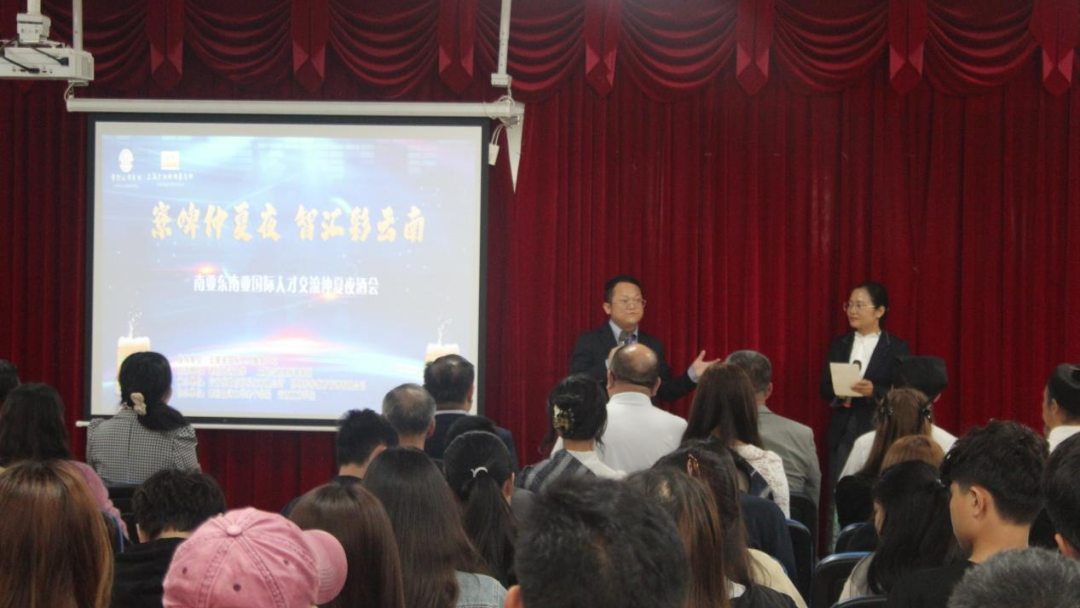
Educational Practices: Universities and International Students Moving Forward Together
Yunnan Technology and Business University: Since enrolling Laotian students in 2014, it has been one of the earliest private universities in Yunnan Province—and even nationwide—to engage in this field. To date, it has trained more than 150 students. At its peak between 2017 and 2019, the university welcomed over 700 international students annually, demonstrating its strong foundation in international education cooperation. Supported by the Yunnan Provincial Government Scholarship and re-accredited by the International Exchange Association of the Ministry of Education, the university has further solidified its leading position among Chinese private universities in hosting international students.
Panzhihua University: Since establishing its Pakistan Alumni Association in 2016, it has been cultivating international ties, and in July 2024, it will launch its Laos Alumni Association. As one of only two universities in Sichuan Province offering international student programs in clinical medicine, it has actively contributed to educational diplomacy in South and Southeast Asia.
Cross-Border Stories: Cultural Encounters and Institutional Advantages
A humorous anecdote from lawyer Lin Yi’s trip to Pakistan set the room alight with laughter: on his first day in Karachi, his local driver enthusiastically showed him a handgun—a striking example of “cultural shock” that reflects the challenges Chinese enterprises face in overseas expansion. In a lighthearted atmosphere, participants also engaged in a mini Laotian-language lesson, with lively exchanges between Laotian students and Chinese guests that brought the spirit of cross-cultural interaction to life.
Mr. Liu Yixing, drawing on his personal experiences and in-depth observations, delivered a keynote sharing on Ukraine’s current situation, the strengths of China’s industrial chain, institutional effectiveness, international cooperation, and his own growth journey.
On Ukraine: Outside of active conflict zones, daily life and business operations in most Ukrainian cities remain normal. Chinese goods hold a significant share of the market, and in Odessa alone, more than 2,000 Chinese merchants and 1,000 Chinese enterprises are based—highlighting the vitality of Chinese commercial engagement abroad.
On China’s Industrial Chain Competitiveness: Using the rapid rise of Chinese mobile phones in India as an example, Mr. Liu highlighted China’s advantages in supply chain concentration, responsiveness, and trust-based business relations. He emphasized that the “kinship-based industrial structure” rooted in Confucian culture underpins China’s manufacturing soft power.
On Institutional Advantages: He pointed out that the Chinese Communist Party, as a “revolutionary party,” embodies openness and people-oriented values, distinct from the systems in Europe, the United States, and India, which are constrained by capital and political dynasties. Citing examples such as the “Red Flag Law”(红旗法案) and mobile payments, he argued that China, free from oligarchic restrictions, can vigorously advance high-speed rail, green energy, and other future-oriented technologies, showcasing institutional vitality.
On Proposals for Developing Countries: Mr. Liu called for closer cooperation with China to share high technologies and new productive forces, enabling developing nations to achieve leapfrog development. He further noted that China has never exercised its veto in multilateral financial institutions, reflecting its role as a responsible major power.
On His Personal Journey: Mr. Liu shared how he started with only RMB 14,000 eight years ago and, by leveraging China’s development opportunities, went on to establish more than 30 overseas offices worldwide. He emphasized that ordinary individuals can achieve extraordinary success by seizing the opportunities of the times.
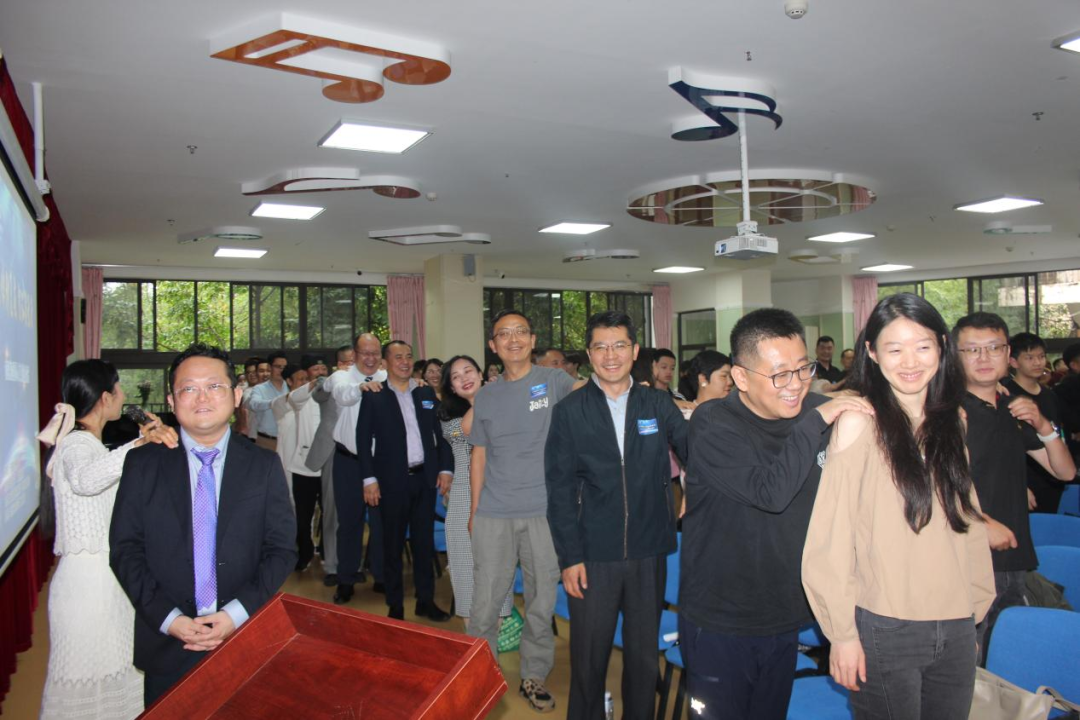
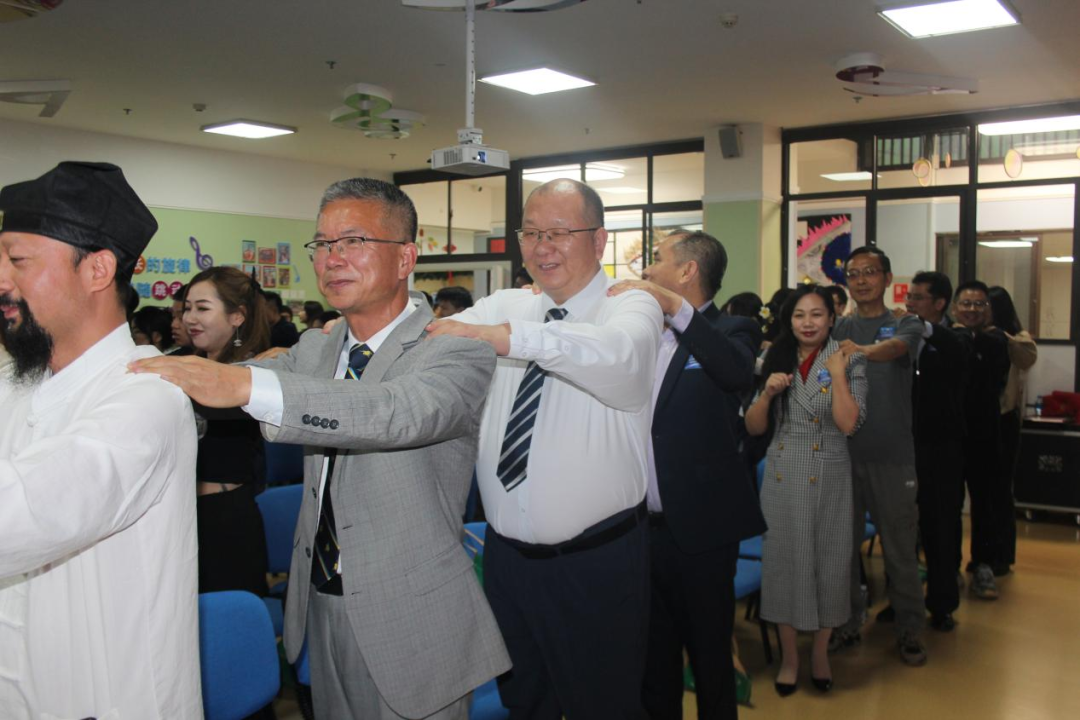
Voices of International Students: International Students on Why They Love China
Laotian student Aria gave a witty and engaging self-introduction, expressing her appreciation for the campus environment and teaching quality at Yunnan Technology and Business University. She shared her intention to continue pursuing her undergraduate studies at the university and conveyed her excitement and enthusiasm for studying in China.
A Pakistani student recalled the challenges he faced upon first arriving in China due to language barriers, but emphasized how he has since grown to love the country for its safety and strong academic atmosphere. He remarked that “Chinese is very interesting” and expressed his willingness to build a future career in China.
Consensus of the Reception: Shaping the Region’s Future Through Talent Connectivity
Blending education, law, and culture, this cross-border reception broke away from the rigid image of traditional conferences. From the internationalization blueprints of Laotian universities, to the first-hand overseas expansion practices of Chinese enterprises; from the personal experiences of international students, to in-depth reflections on institutional advantages under the global order—the event fully embodied its original vision: “to promote exchange through experience, and inspire the future through ideas.”

兰迪律师官方微信

兰迪全球官方微信